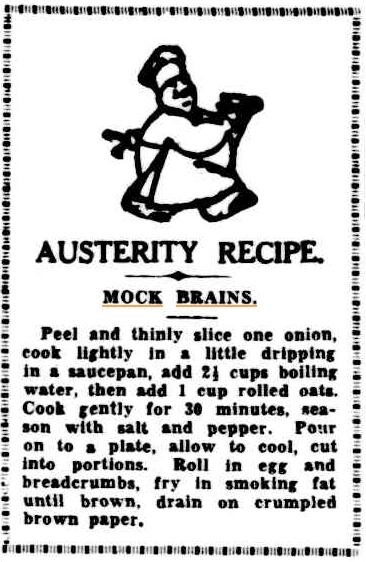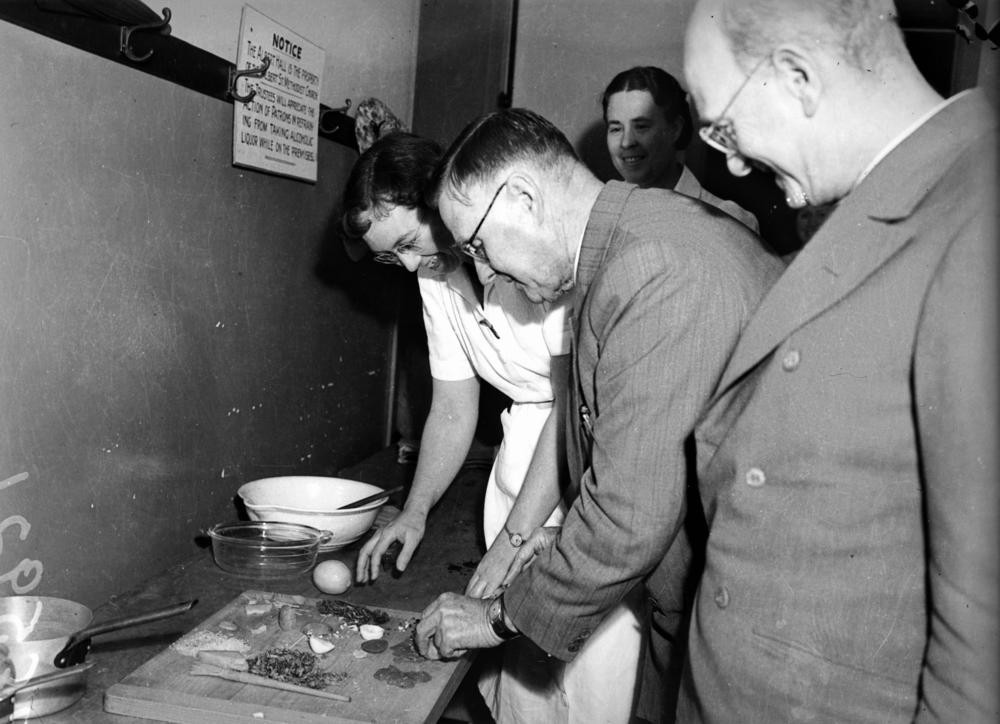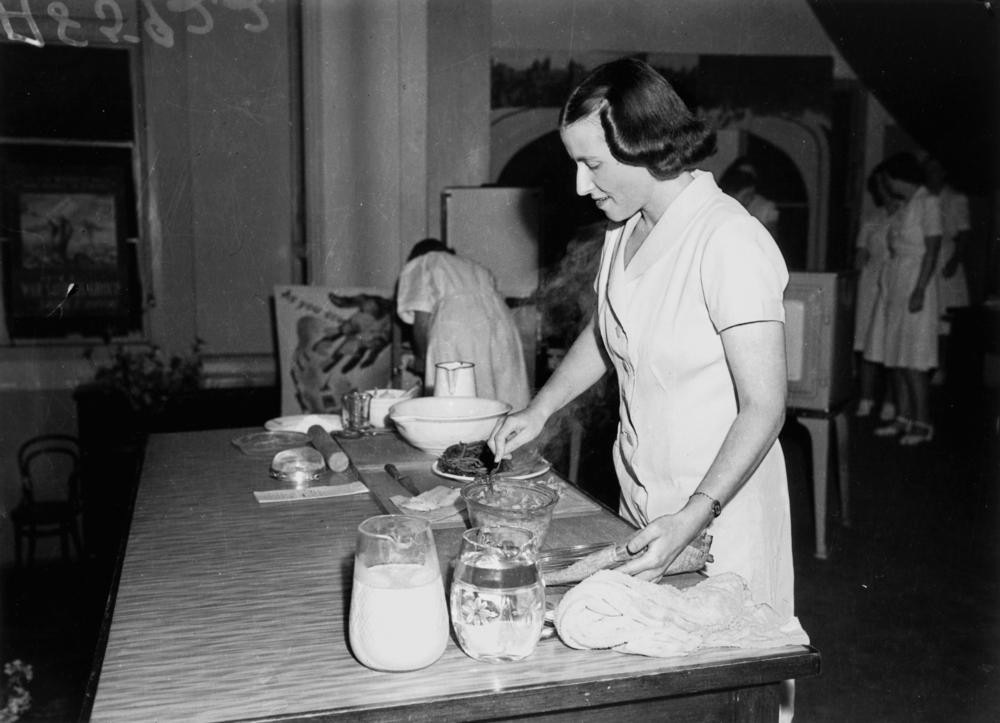Plain Provisions - Austerity Cooking hits Queensland (1942)
By JOL Admin | 21 December 2012

In October and November 1942 the Department of Public Instruction in conjunction with the Commonwealth Government organized "Austerity Cooking" demonstrations throughout Queensland. The basic principle behind the Austerity Cooking campaign was the utilization of ingredients which were easily obtainable instead of those that were scarce, and therefore expensive. The savings made by each household could then be invested in the Austerity War Fund.
Various women's associations assisted in the organisation of these public cooking demonstrations and promoting the event in their local towns. At each demonstration published planned menus were handed out to the audience, containing over 30 dishes which could be cheaply prepared and still be nutritious.

Many of the recipes promoted cheaper cuts of meat such as mutton and glandular meats, such as liver, tripe, hearts and brains. "Meat substitutes" including eggs, cheese, fish and milk were also advanced.
The Brisbane demonstrations were held at the Albert Hall on 22 and 23 October and officially opened by Premier Frank Cooper and Lord Mayor Alderman John Chandler. In Premier Cooper's opening address he stressed the importance of austerity in daily life - "Some people do not like the word austerity; it has a firmness and a directness which is not agreeable to us...The demands of war in men and materials and foodstuffs have cancelled many luxuries. We must not buy what we can do without...The responsibility is on us all to so order our lives that we make available every possible penny for the war effort." At one point the Premier became an active participant as he helped prepare a salad.
The demonstration was given from a stage with stoves installed at the side. The finished dishes were then placed on a table for the audience to inspect. During intervals there were short talks on the war loan, austerity principles and nutrition. Some of the dishes demonstrated in Brisbane were -
- Breakfast - Stone ground wholemeal porridge, creamed liver, papaw and lemon
- Luncheon: Savoury mould cheese and haricot bean salad, cheese and carrot savoury
- Dinner: Spinach puree, savoury mutton pie - (with a scone top in place of potatos), Swede turnips, parnisnips, creamed cabbage
- Pudding: steamed fruit pudding (without eggs)

In addition to Brisbane, public cooking demonstrations were held across the State, including Allora, Atherton, Ayr, Bowen, Bundaberg, Burketown, Cairns, Charleville, Charters Towers, Childers, Chinchilla, Crow's Nest, Cunnamulla, Dalby, Gatton, Gayndah, Goondiwindi, Gympie, Home Hill, Ipswich, Innisfail, Kingaroy, Mackay, Malanda, Maryborough, Mt Morgan, Murgon, Rockhampton, Roma, Stanthorpe, Toowoomba, Townsville and Warwick. Some regional areas welcomed the demonstrations with enthusiasm. In Mackay over 450 women attended, while Warwick and Toowoomba had 400 and 300 attendees respectively.
Many of the newspapers and magazines during this period regularly published austerity recipes and household hints. For example The Warwick Daily News had some suggestions for using leftovers. Hints for leftover porridge included using it to thicken soups and stews, or thinned down with milk and strained for a tasty "invalid gruel".

Comments
Your email address will not be published.
We welcome relevant, respectful comments.